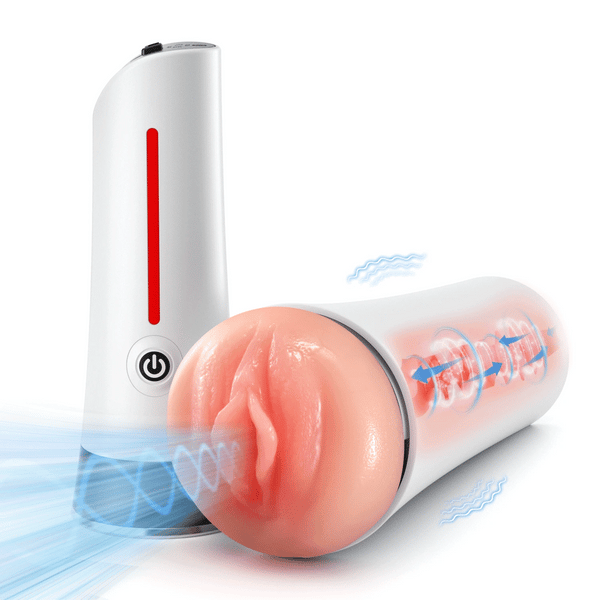Yes—water-based lubricants make intimacy smoother, safer, and more comfortable for most people. They’re easy to clean, friendly with latex condoms, and widely recommended by U.S. health organizations. Here’s what that means for you in practical, no-nonsense terms.
We’ll define what a lubricant is, explain why your bottle should be a go-to tool, give 10 compelling, research-backed reasons to use it, and close with short, straight-answer FAQs you can act on tonight.
What Is a Lubricant
A lubricant is a gel or liquid that reduces friction, so movement feels smoother and more comfortable. It can be applied to external genitals, the vaginal canal, or condoms to decrease rubbing and irritation during sex.
Why this matters now: natural wetness changes with stress, hormones, medications, and timing. A small amount of the right sex lubricant can bridge the gap and keep touch feeling good instead of scratchy or hot.
Types at a Glance
In stores, you’ll see water-based, silicone-based, and oil-based formulas. Water-based lubricants are the everyday choice: they’re compatible with latex and polyisoprene condoms, rinse off with water, and feel “natural” to many users.
Silicone lasts longer but can be harder to wash off and may not play nicely with some silicone toys. Oil-based options are long-lasting but can weaken latex condoms, which is a safety issue in vaginal or oral-to-genital sex.
Bottom line for U.S. readers: if you want one bottle that covers most situations and protects latex condoms, start with water-based. Add silicone later if you need extra glide for longer sessions.

Why Your Lubricant Should Be Your Bestie
Think of lube as a comfort tool, not a “fix.” Athletes use glide cream to prevent chafing; guitarists use fingertip products for calluses; you use moisturizer for dry hands. Same logic here—lube reduces friction so you can focus on connection, not discomfort.
The mindset shift: reaching for lube is a sign of care and good planning. It anticipates normal changes in vaginal lubrication across the cycle, postpartum, with certain medications, and during menopause—times when dryness is common and treatable.
10 Compelling Reasons to Use Lubricant When Making Love
Below are the most practical, evidence-informed benefits. Use them as talking points with a partner or as a checklist when choosing a product.
Less Friction, More Comfort
Even small dryness can create hot spots and micro-irritations. A pea-sized amount of water based lubricants often prevents that, especially at the start, before natural wetness ramps up.
Apply a thin layer to the entrance and any contact points. Add more if you feel drag—don’t push through discomfort.
Better Condom Performance
Latex likes water or silicone; it doesn’t like oil. U.S. guidance is clear: use water- or silicone-based lube with latex condoms; skip petroleum jelly, body lotions, or cooking oils because they can weaken latex and increase break risk.
Add a drop inside the condom tip (not over the reservoir) and more on the outside. It boosts sensation and reduces breakage from friction.
Supports Sensitive Skin
When you’re recovering from irritation, postpartum changes, or perimenopausal dryness, a gentle water-based lubricant personal formula eases contact and reduces sting. Many clinicians recommend lubricants alongside moisturizers for comfort during sex.
Avoid flavored, warming, or “tingle” additives if you’re sensitive; keep it simple.
Aligns with U.S. safety standards
In the United States, personal lubricants are regulated medical devices. FDA classification recognizes lubricants intended to moisturize and lubricate for sexual activity; some are also cleared as condom-compatible or fertility-friendly.
Buying mainstream, labeled products gives you ingredient lists, lot tracking, and labeling about condom compatibility.
Respects Condom and Toy Materials
Latex and polyisoprene condoms do best with water-based lubricants. Silicone toys may get tacky with silicone lube; water-based is the safe universal match if you’re unsure.
Water for everything; silicone only if you know your toy and you want a longer glide.

Easier cleanup
Water-based formulas rinse off with, well, water. No stains, no residue on sheets, and minimal shower time—handy if you share a bathroom or live with roommates.
Less cleanup means more cuddling and less “Where’s the towel?” mid-scene.
Comfort during health transitions
Menopause, breastfeeding, some antidepressants, antihistamines, and cancer treatments can reduce baseline wetness. Clinicians routinely suggest lubricants to make sex comfortable and maintain intimacy during these phases.
If dryness persists, ask about vaginal moisturizers or local estrogen; lube helps during sex, moisturizers help day-to-day.
Protects delicate tissue
High-osmolality products can pull water from cells and may feel irritating for some users. Public-health guidelines highlight pH and osmolality ranges that better align with vaginal tissue. While not every bottle lists these specs, choosing gentler formulas is wise if you’re sensitive.
Look for “pH-balanced” and avoid strong fragrances or flavors when irritation is a concern.
Enhances all kinds of touch
From slow massage to quickies, lube lowers the friction budget so you can explore pacing, angles, and pressure. It also helps with hands-only play, making strokes feel smooth instead of grabby.
Warm a dab between fingers first so application feels like part of foreplay, not a pause.
Confidence and communication
Keeping lube on the nightstand sends a friendly message: “We plan for comfort.” Many couples find it lowers pressure to “perform” natural wetness and opens easy conversations about what feels good. Planned Parenthood’s education resources echo that using lube is normal, practical, and pleasure-positive.
FAQs
Can You Use Vaseline as a Lubricant?
No. Petroleum jelly and other oils can weaken latex condoms and raise the risk. U.S. guidance recommends water- or silicone-based lubricants with latex. Choose water-based lubricants if you want easy cleanup and broad compatibility.
What Can You Use as Lubrication?
Use labeled water-based or silicone-based products made for sexual use. They’re tested and clearly indicate condom compatibility. Avoid household oils, lotions, or food products because they can irritate tissue or damage latex.
Is Coconut Oil Good for a Lubricant?
It can feel slick, but it’s oil-based and not compatible with latex condoms. If pregnancy or STI prevention is a concern, pick water-based lubricants or silicone-based options instead. When using toys or latex barriers, oil is not the safest choice.



